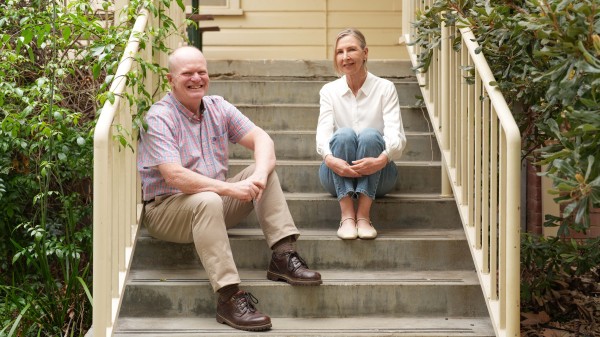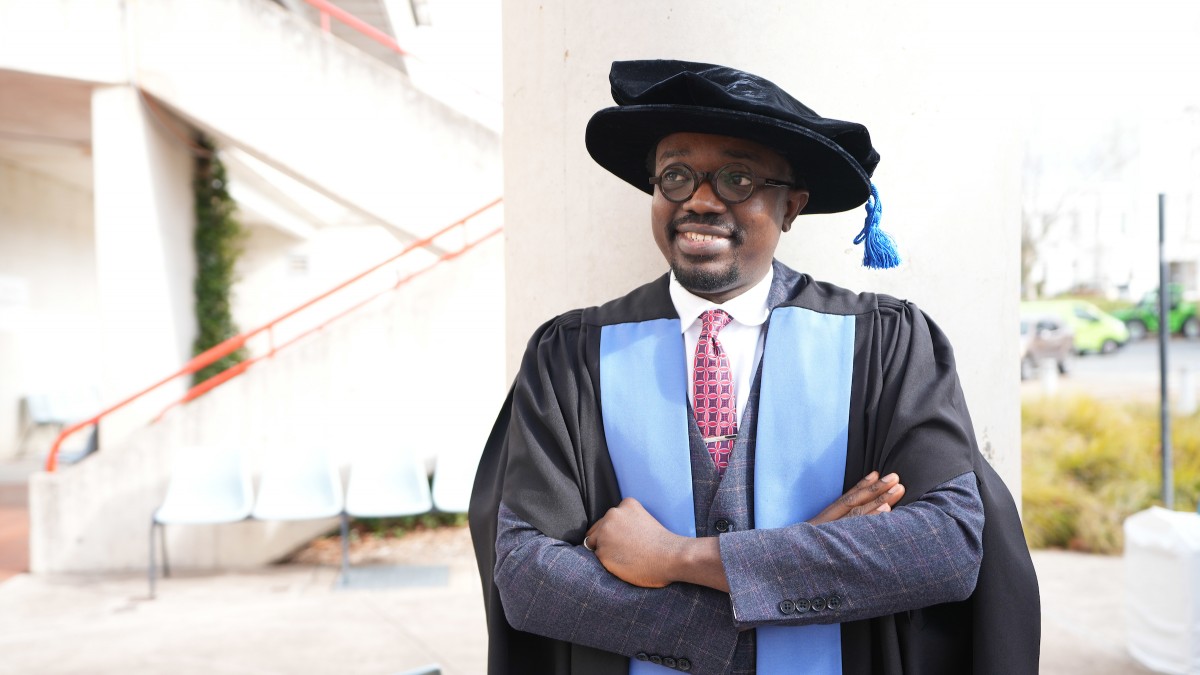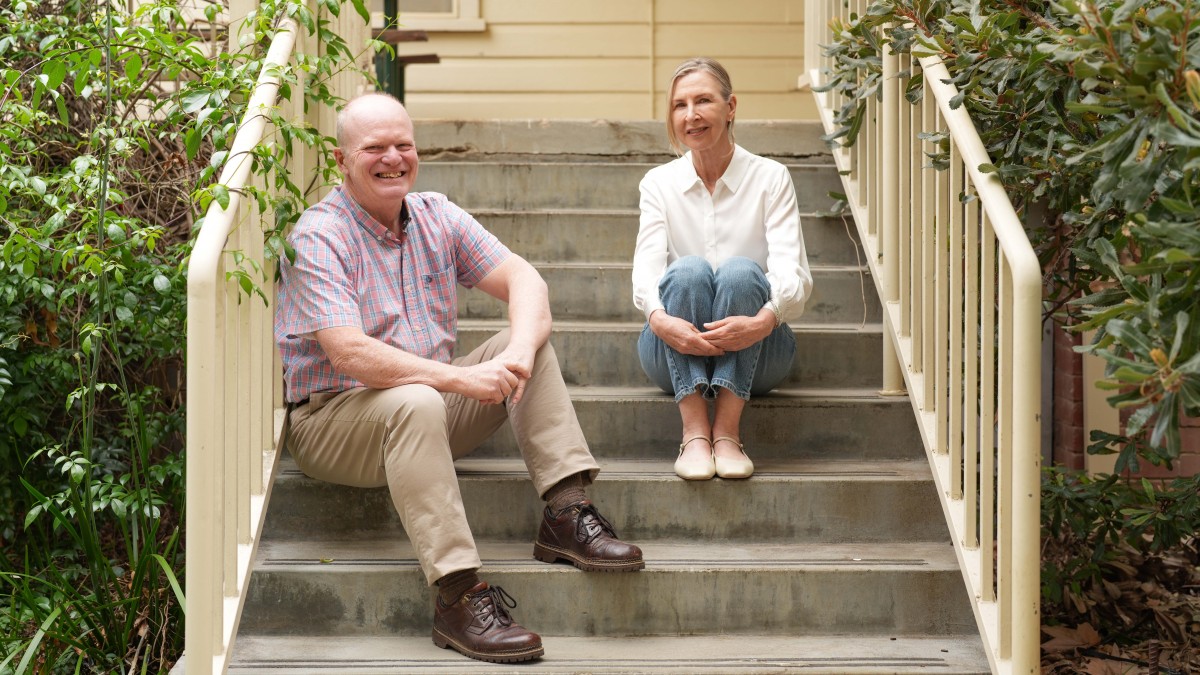From defeating human champions in the complex board game Go to generating human-like conversations as virtual assistants, machine learning has achieved multiple innovative milestones in the past decade.
Now, Dr Busayo Israel Ajuwon at the National Centre for Epidemiology and Population Health (NCEPH) is testing the potential of machine learning to advance population health.
Growing up in Nigeria, Dr Ajuwon witnessed firsthand the severe disadvantage people faced when healthcare is inaccessible. Hepatitis B, a viral infection attacking the liver, for example, poses a significant public health threat in Nigeria due to limited resources.
"An estimated 20 million people in Nigeria are living with chronic hepatitis B, with more than 90% undiagnosed," Dr Ajuwon says, "Often, the disease goes undetected until it's too late."
Chronic infection of hepatitis B virus burdens people with high risk of death from cirrhosis and liver cancer.
While early detection helps improve patient outcomes and prevent transmission, the recommended test—an enzyme immunoassay that detects the hepatitis B surface antigen—can be prohibitively expensive for many Nigerians.
"I knew people who were disproportionately impacted by hepatitis B virus because they couldn’t access affordable testing,” Dr Ajuwon says, “Rural and remote populations have almost no access at all.”
To tackle this challenge, Dr Ajuwon based his PhD research in coming up with a more accessible and affordable way to detect hepatitis B infection— using machine learning.
Hidden Patterns
Working closely with the Nigerian Institute of Medical Research, which hosts a specialised hepatitis B clinic, Dr Ajuwon accessed data from 916 anonymous patients to train a machine learning algorithm.
“This algorithm was designed to sift through the data to detect subtle interactions and patterns common to patients infected with hepatitis B virus,” he explains.
Over time, the algorithm 'learned' which patterns are useful to predict a patient’s infection status through easily obtainable routine blood tests results.
Eventually, the algorithm achieved high accuracy in predicting those infected with hepatitis B virus by analysing the relationships between patient age, white blood cell count, and the level of serum albumin as well as two specific enzymes (aspartate aminotransferase and alanine aminotransferase).
“Higher levels of these molecules in one’s blood may suggest potential liver damage,” explains Dr Ajuwon. Although the actual presence of the hepatitis B virus isn’t directly detected, the algorithm picks up the hidden impact of the virus on the liver.
This algorithm was further developed into a free, publicly accessible tool called HepB LiveTest. With the required blood work and age data, the tool provides real-time assessments of hepatitis B infection status, with performance comparable to the gold-standard immunoassay method.
“HepB LiveTest can be integrated into routine clinical workflow to help clinicians detect hepatitis B infection earlier and optimise the quality of life for millions of infected patients,” says Dr Ajuwon.
“This is particularly important for underserved populations in low-resource settings.”
Now, the tool is made available as a free, user-friendly app for clinicians. A recent study assessed the performance of HepB LiveTest in a hospital-based Nigerian patient cohort and an Australian patient cohort to see how well it might work in other settings.
However, Dr Ajuwon advises caution in adopting the same model—in settings with low incidence of hepatitis B.
“It is also important to evaluate the adoption of HepB LiveTest in real-world clinical settings, preferably through randomised clinical trials, to inform evidence for improved patient outcomes and process optimisation,” he notes.
Accessibility to all
Earlier this month, Dr Ajuwon graduated from NCEPH with a doctoral degree in epidemiology and population health.
“My PhD research mentor, Associate Professor Brett Lidbury, has been fundamental to my success, especially in guiding me through my PhD journey. His support has been pivotal,” says Dr Ajuwon when reviewing his journey.
Dr Ajuwon also credits Professor AbdulRasheed Na’Allah, the pioneer Vice-Chancellor of Kwara State University and the immediate past Vice-Chancellor of the University of Abuja, Nigeria, for continually empowering him to do things differently.
“One of the key things I wanted from a career was intellectual freedom—the freedom to chase my curiosity and delve deeper into research that could accelerate discoveries and deliver real-world impacts.”
With support along the way, he did find the freedom he longed for, and made good use of it. By applying machine learning to fundamental population health problems, his work is contributing to the changing healthcare landscape in his home country.
“The aim is to make early detection accessible to all Nigerians, regardless of where they live, so people living with hepatitis B no longer have to wait for their infection to become chronic and liver disease to reach an advanced stage,” he says.
- This article first appeared on the NCEPH website.













